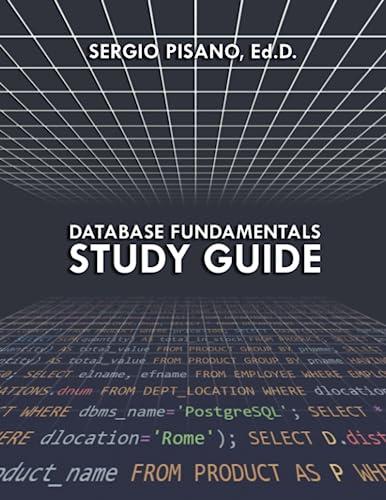Answered step by step
Verified Expert Solution
Question
1 Approved Answer
1 . ( a ) An operator is said to be associative, if ( AB ) C = A ( BC ) . for all
a An operator is said to be associative, if AB C A BC for all A B and C in the domain under discussion. For instance, addition is associative over the integers, while subtraction is not. In propositional logic, both V and are associative operators. What can you say about the boolean operators and as regards associativity? b The exclusiveor operator on two boolean variables A and B is defined as follows: A e B is true exactly when one of A and B is true. Draw the truthtable for the operator. Show that A B can be expressed using our usual boolean operators, viz., V A and'. Let S Argue that S is functionally complete for propositional logic. In other words, show that every wellformed formula in propositional logie can be formed using only the operators in S Is the following argument valid? Provide a proof of validity or an interpretation where it does not hold. PVQARR V S A STTP You may not use the truthtable method in your analysis. Show that the following arguments are tautologies, using rules of inference. a PPAPbPVP P Consider the following verbal argument: It is not the case that if electric rates go up then go down. Nor is it true that either new power plants will be built or bills will not be late. Therefore, usage will not go down and bills will be late. Is it valid? usage will
Step by Step Solution
There are 3 Steps involved in it
Step: 1

Get Instant Access to Expert-Tailored Solutions
See step-by-step solutions with expert insights and AI powered tools for academic success
Step: 2

Step: 3

Ace Your Homework with AI
Get the answers you need in no time with our AI-driven, step-by-step assistance
Get Started


